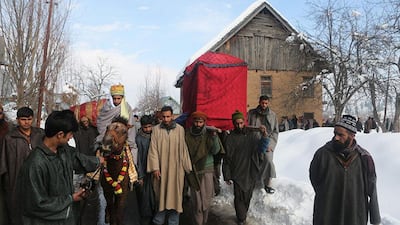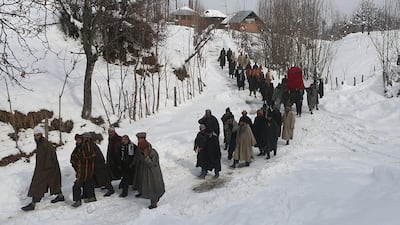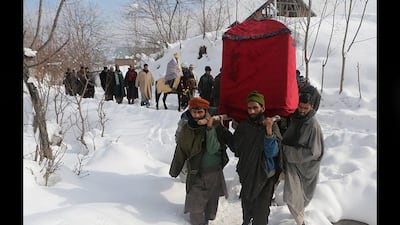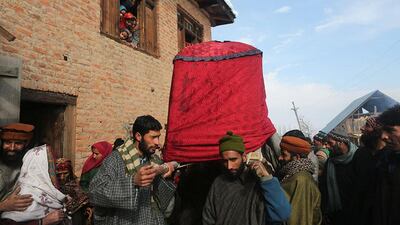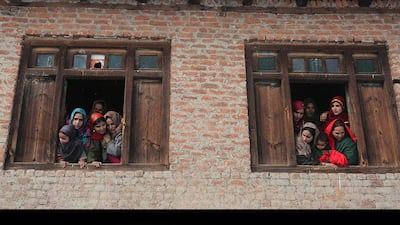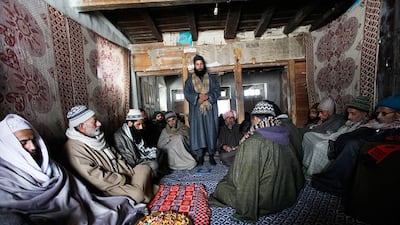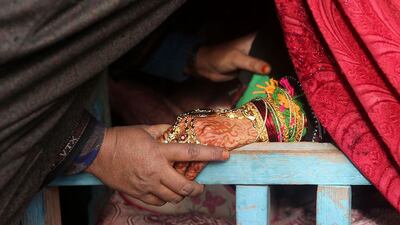The pastoral community of Gujjars, an ethnic group mostly in Jammu and Kashmir, India, Pakistan and Afghanistan have a unique culture. They dress differently and speak a different language – Gujjari - than others living in the region.
Like their culture and language, the marriage ceremonies of Gujjars are also unique. The marriage of Liyaqat Ali Khan, 27, of Andanwan Sangarwari, 65 km south of Srinagar in Pulwama district, and Fatima Akhtar, 21, of Sanganwari, was solemnized on Janurary 13, 2014, amid a pomp and show of a different kind.
In traditional Muslim families in Kashmir, marriage functions are either performed during May or September seasons, but the Gujjar community hold them during the summers as well as the winters, even if it means braving the harsh winter chill and rough weather.
The groom Khan, a 12th standard pass out, has learnt the Muslim holy book, the Quran, by heart and works as a temporary employee in the region’s Forest department. His wife Akhtar works as an embroidery artist on local handicrafts like shawls and rags, which she later sells to the handicrafts shops in the nearby market.
On the day of marriage, the groom wears a cloak called a Pheran over a Khan suit and a Kashmiri shawl, a Dussa. He also wears a special turban worn by male community members.
Similarly, Akhtar sports bright-coloured clothes under a black veil. Her shoes are colourful and she wears lots of jewellery.
Their marriage is performed according to Islamic customs with the local Gujjar priest solemnizing their Nikah, which declares the two as husband and wife.
Following the Nikah the groom and his guests are offered tea and locally baked goods.
The groom followed the bride on a horse as local villagers including the womenfolk watched the couple from the windows of their houses.
Gujjars communities include members from Hindus, Muslims and Sikh religions and certain histories credit Alexander The Great for the discovery of the Gujjar community.
The 2001 Indian census puts the Gujjar population at 7.64 lakh (763,806), making them the most populous scheduled tribe in Jammu and Kashmir.
Around 99.3 per cent of Gujjars, and a similar community of nomadic Bakarwals in Jammu and Kashmir, are Muslim and, according to the Tribal Research and Cultural Foundation, Gujjars constitute more than 20 percent of total population of the state.
In 2002, under the banner of All India Gurjar Parishad, some Gujjars and Bakarwals in Jammu and Kashmir demanded a separate state, Gujaristan for Gujjars and Bakarwal communities.
* Farooq Khan
